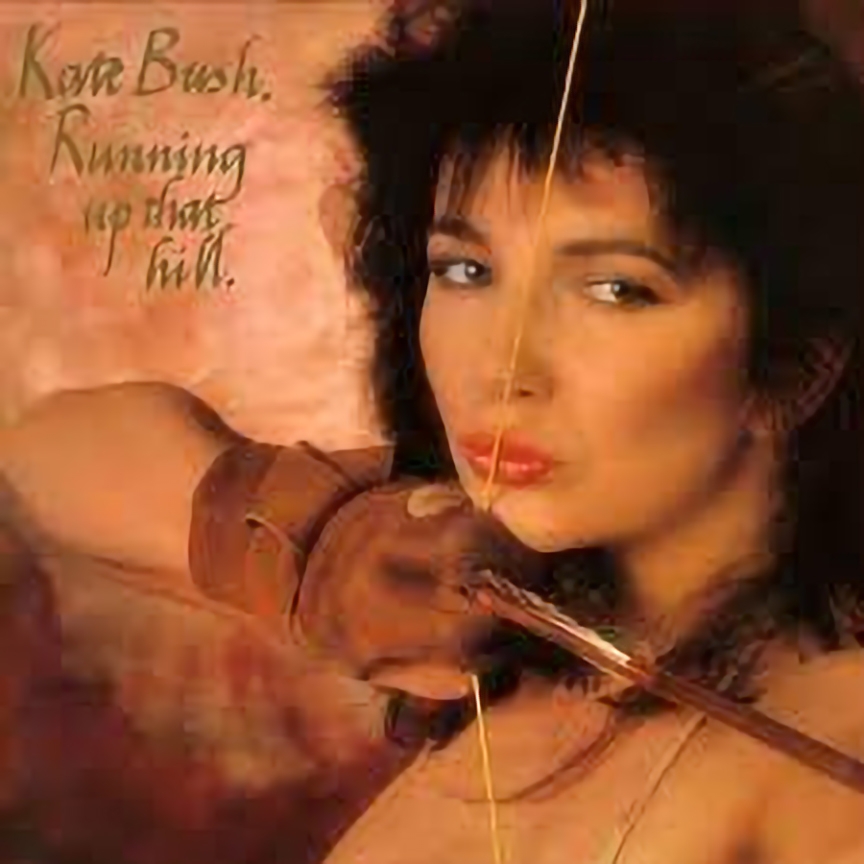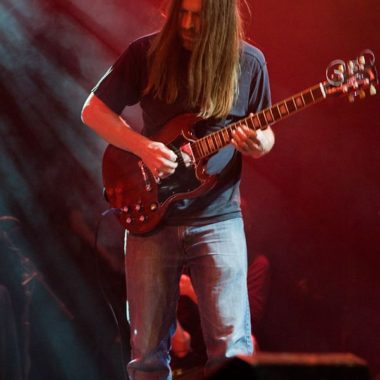Beauty runs deep. The surprise hit of the summer may turn out to be Kate Bush’s 1985 single “Running Up That Hill” which, after placement in an episode of the Netflix series Stranger Things, hit the top 10 in 14 countries and raced to the top of the Apple Music charts in the states. It’s not exactly a deep cut. The video was in regular rotation on MTV in its day, and it’s been covered repeatedly since then, including a 2003 version by Placebo that charted after being used in the TV show The O.C. The song certainly runs alongside “Wuthering Heights” as one of Bush’s best known tracks, and it’s not hard to understand why. The lyrics speak of overcoming adversity, and who doesn’t love that? It was also the first time Bush retread old grooves, reusing the heavy drums and Fairlight synthesizers from her previous album (The Dreaming, which remains her break-though and brilliant career high) but with lyrics less distancing, less demanding, less—smart.
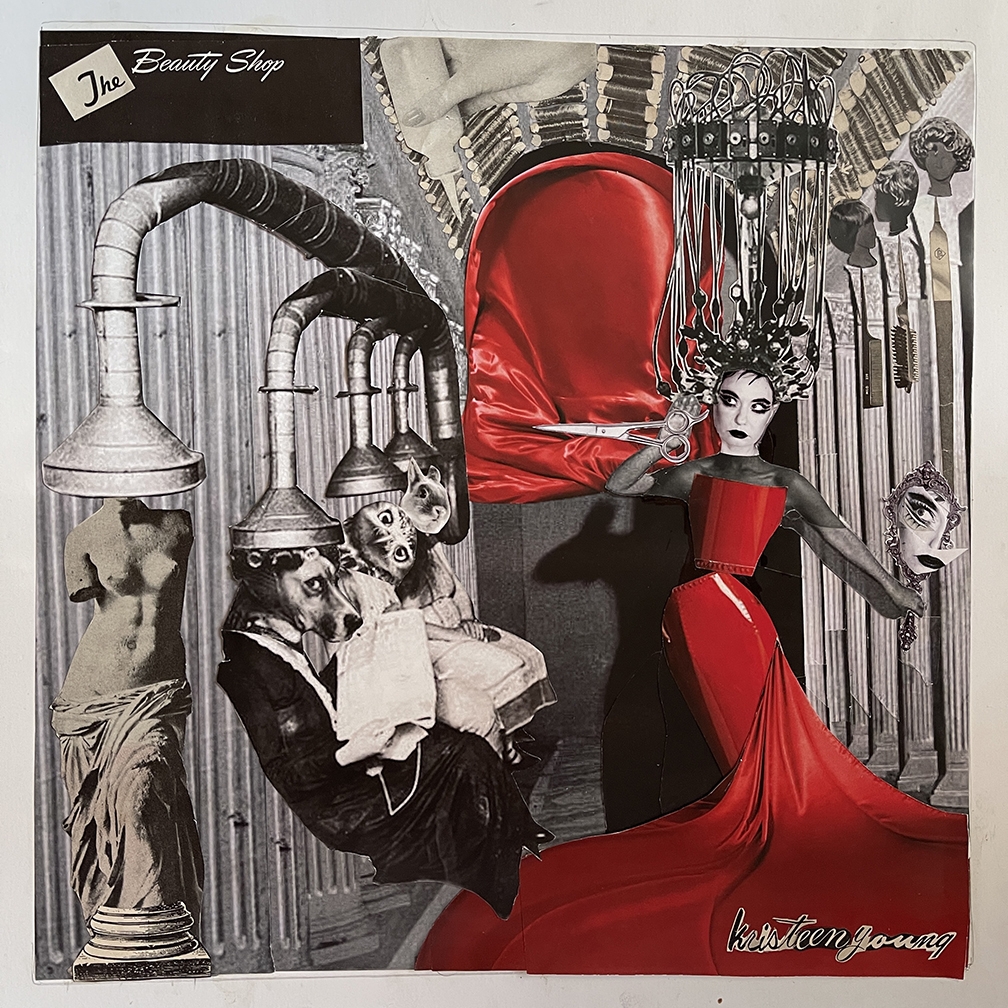 If this does prove to be the summer of Bush, then maybe some of that good fortune will come the way of NYC phenom Kristeen Young. The comparison does her a bit of a disservice, as comparisons usually do, but it’s not a hard one to make with her new album The Beauty Shop (June 24, self-released on vinyl and CD): the soprano vibrato like a serrated knife, the intensity and complexity of the music, the sometimes sheer terror of the songs. Young’s been around for a bit. The Beauty Shop is her ninth album after her 1997 debut, and like The Dreaming was for Bush, it’s a defining statement. There’s anger in the songs, not months-anger but years-anger, chiefly about the expectations and obligations of being a woman. And perhaps as happens with women, when people write about her (including me, here), they write about the men she’s worked with: Bowie, Morrisey, even Brian Molko of Placebo. (And Bowiephiles, take note, she has Tony Visconti on bass and Donny McAslin on saxophone here.) Then they mention Kate Bush. But The Beauty Shop deserves to be judged on its own merits. Start with the hyperdramatic videos Young made for the album and proceed directly to her Bandcamp. It’s not an album to be taken lightly, or forgotten quickly.
If this does prove to be the summer of Bush, then maybe some of that good fortune will come the way of NYC phenom Kristeen Young. The comparison does her a bit of a disservice, as comparisons usually do, but it’s not a hard one to make with her new album The Beauty Shop (June 24, self-released on vinyl and CD): the soprano vibrato like a serrated knife, the intensity and complexity of the music, the sometimes sheer terror of the songs. Young’s been around for a bit. The Beauty Shop is her ninth album after her 1997 debut, and like The Dreaming was for Bush, it’s a defining statement. There’s anger in the songs, not months-anger but years-anger, chiefly about the expectations and obligations of being a woman. And perhaps as happens with women, when people write about her (including me, here), they write about the men she’s worked with: Bowie, Morrisey, even Brian Molko of Placebo. (And Bowiephiles, take note, she has Tony Visconti on bass and Donny McAslin on saxophone here.) Then they mention Kate Bush. But The Beauty Shop deserves to be judged on its own merits. Start with the hyperdramatic videos Young made for the album and proceed directly to her Bandcamp. It’s not an album to be taken lightly, or forgotten quickly.
To further belabor the forced parallel, the new record by Saajtak could be heard as a direction Bush might have gone had she committed herself to electronics and sequencers in the years after running up said hill. The band’s debut, For the Makers (out June 3 from American Dream) arrives after close to a decade of activity in Detroit, and their tight dynamic shows it. The songs would be easy to dismiss as amped-up club music, but there’s a lot going on in the mix. The electronics and Alex Koi’s suspended voice make for something like hardcore Goldfrapp, but with layers you can get lost in. Koi had relocated to New York City by the time work began on the album and in this case, familiarity breeds content. For the Makers took shape through long-distance improvisations and lockdown file-sharing, which might explain its weird mix of alienation and cohesion. Detroit house music still seems somehow stamped in their DNA, at least in Simon Alexander-Adams’ synthesizers, but it’s pretty heady stuff, and with the drive Ben Willis’s bass and Jonathan Barahal Taylor’s drums, set to make brainpans dance.
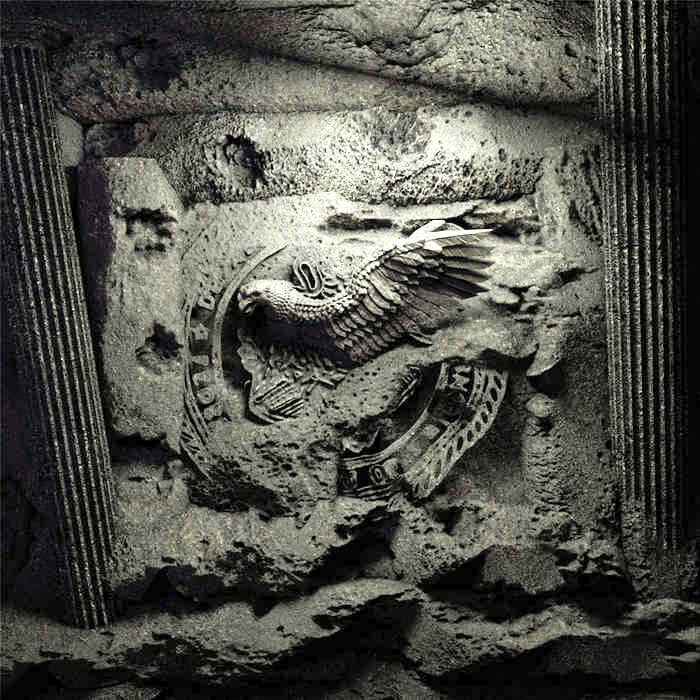 Hard industry from the Big House. If the Saajtak discotheque doesn’t quite sound like a good time, Prison Religion’s dancefloor is a nightmare of beats and blasts. Hard Industrial B.O.P. (out June 10 on UIQ, cassette and digital) is the third release by the Virginia duo of Poozy (Parker Jones) and False Prpht (Warren Black) and it’s a downright frightening 23 minutes. Heavy beats, processed voices and screams, loops and drill’n’bass blasts fill the 9 short tracks, more like scenes than songs. In the album’s title, they reference jazz drummer Art Blakey and the dawn of hard bop as an effort to find a purity outside of gimmickry. “So many here are held captive within prisons and facilities,” they ask in the notes to the album. “What is honesty? Words, gestures, and identities twisted through the perverse lens of a failing system?” The gimmicks Prison Religion rejects are societal, which leaves them with a pretty anti-social, and powerfully disconcerting, music.
Hard industry from the Big House. If the Saajtak discotheque doesn’t quite sound like a good time, Prison Religion’s dancefloor is a nightmare of beats and blasts. Hard Industrial B.O.P. (out June 10 on UIQ, cassette and digital) is the third release by the Virginia duo of Poozy (Parker Jones) and False Prpht (Warren Black) and it’s a downright frightening 23 minutes. Heavy beats, processed voices and screams, loops and drill’n’bass blasts fill the 9 short tracks, more like scenes than songs. In the album’s title, they reference jazz drummer Art Blakey and the dawn of hard bop as an effort to find a purity outside of gimmickry. “So many here are held captive within prisons and facilities,” they ask in the notes to the album. “What is honesty? Words, gestures, and identities twisted through the perverse lens of a failing system?” The gimmicks Prison Religion rejects are societal, which leaves them with a pretty anti-social, and powerfully disconcerting, music.
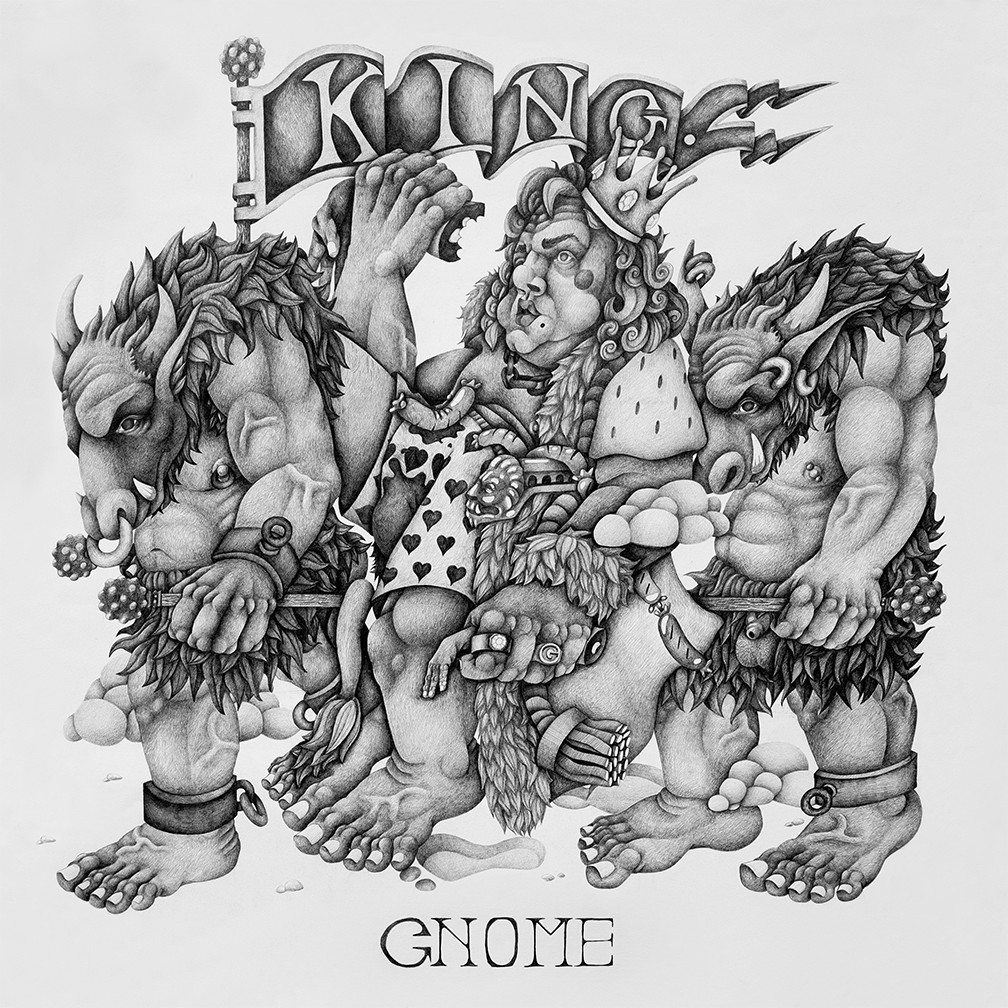 Meanwhile, the gnomes are rising up. The other celebrated ’80s act making headlines is Spın̈al Tap, the all-too-believable mock metal band immortalized in film by Rob Reiner. In hindsight, one has to wonder how much metal parody we really need. The oft missed fact of the matter is that metal sometimes (less often than not) is already making fun of itself. Just as nonfans tend to think country singers playing the hick are really that dumb, the cheekiness of epic, mythic metal is often missed. In both cases, the point is the music; the lyrics are just a funhouse mirror. The Belgian power trio Gnome might manage to subvert such prejudice with pointy red hats, but probably won’t. They are poundingly tight, though, while singing about their efforts to rise and wage war against their oppressors, the tyrannical forces who seek to hold down the, uh, gnomes. King (out May 5, digital and CD, from Polder Records) delivers the lyrics—more of them than on their 2018 debut, but there’s still a few blistering instrumentals including most of the epic 12-minute closer—with anthemic sincerity. Even when they’re playing little jigs, they’re total riff monsters. Recommended starting point is the video for “Wenceslas.” The album is filled with tongue-in-cheek guitar-face action, but it’s fighting music. The revolution is afoot—a tiny, dirty, hairy, warty, foot.
Meanwhile, the gnomes are rising up. The other celebrated ’80s act making headlines is Spın̈al Tap, the all-too-believable mock metal band immortalized in film by Rob Reiner. In hindsight, one has to wonder how much metal parody we really need. The oft missed fact of the matter is that metal sometimes (less often than not) is already making fun of itself. Just as nonfans tend to think country singers playing the hick are really that dumb, the cheekiness of epic, mythic metal is often missed. In both cases, the point is the music; the lyrics are just a funhouse mirror. The Belgian power trio Gnome might manage to subvert such prejudice with pointy red hats, but probably won’t. They are poundingly tight, though, while singing about their efforts to rise and wage war against their oppressors, the tyrannical forces who seek to hold down the, uh, gnomes. King (out May 5, digital and CD, from Polder Records) delivers the lyrics—more of them than on their 2018 debut, but there’s still a few blistering instrumentals including most of the epic 12-minute closer—with anthemic sincerity. Even when they’re playing little jigs, they’re total riff monsters. Recommended starting point is the video for “Wenceslas.” The album is filled with tongue-in-cheek guitar-face action, but it’s fighting music. The revolution is afoot—a tiny, dirty, hairy, warty, foot.
We’re all gnomes.

